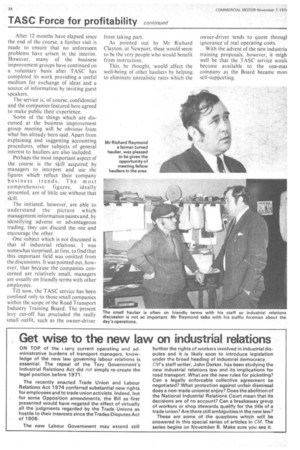Get wise to the new law on industrial relations
Page 38

If you've noticed an error in this article please click here to report it so we can fix it.
ON TOP of the i.lany current operating and administrative burdens of transport managers, knowledge of the new law governing labour relations is essential. The repeal of the Tory Government's Industrial Relations Act did not simply re-create the legal position before 1971.
The recently enacted Trade Union and Labour Relations Act 1974 conferred substantial new rights for employees and to trade union activists. Indeed, but for some Opposition amendments, the Bill as first presented would have negated the effect of virtually all the judgments regarded by the Trade Unions as hostile to their interests since the Trades Disputes Act of 1906.
The new Labour Government may extend still
further the rights of workers involved in industrial disputes and it is likely soon to introduce legislation under the broad heading of industrial democracy. CM's staff writer, John Darker, has been studying the new industrial relations law and its implications for road transport. What are the new rules for picketing? Can a legally enforcable collective agreement be negotiated? What protection against unfair dismissal does a non-trade unionist enjoy? Does the abolition of the National Industrial Relations Court mean that its decisions are of no account? Can a breakaway group of workers or shop stewards qualify for the title of a trade union? Are there still ambiguities in the new law?
These are some of the questions which will be answered in this special series of articles in CM. The series begins on November 8. Make sure you see it.






























































































